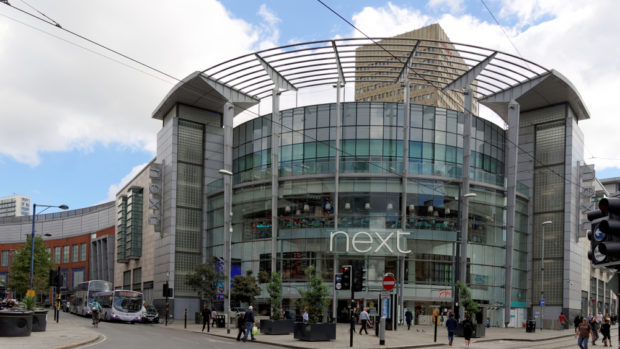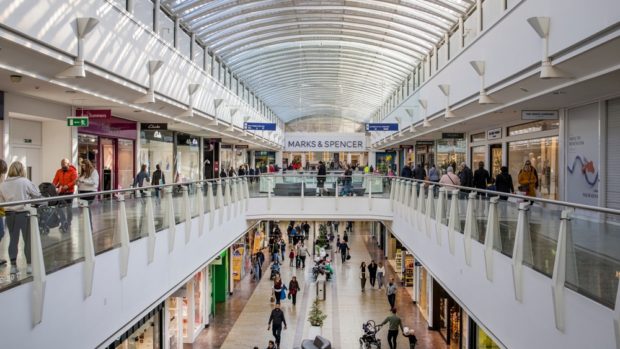Last year’s Black Friday experience was very interesting for a number of reasons. Combined, Black Friday and Cyber Monday were estimated to have boosted UK retail sales by over £6.5 billion – and some retailers who bravely shunned Black Friday in 2017 quietly re-joined the event after missing out on sales the previous year, especially on online channels.
Last Black Friday, most sales came from online, whereas in-store retail spend declined on the previous year, showing that the event is increasingly becoming synonymous with online sales. This is likely because customers can start ordering the night before to take advantage as soon as midnight hits, avoiding the queues and not having to jostle for parking spaces on the high street.
Variety (and offers) are the spice of life
Online search behaviour in the days leading up to Black Friday weekend can give really valuable insights to retailers as to what they should ensure is in stock, so they can provide offers that customers can’t refuse. These insights will be leveraged more than ever before this year, as research last year found almost half of consumers had selected a specific product or set of products that they wanted to purchase as the deals came through, doing a frantic price comparison on the day to select a deal. Planning ahead to provide variety and promotions will be more important than ever this Black Friday.
Singles’ Day inspiration
UK retailers are taking inspiration from China, where Singles’ Day event sales surpassed Black Friday by a considerable amount in 2018. Singles’ Day presents a new kind of retail – not just allowing customers to move seamlessly between channels, but blending offline and online to provide a compelling offering that makes the customer buy right there and then. For example, retailers could show how many customers are looking at a deal and how many are left in stock, to make consumers speed up their purchase before stocks run out – something we’re likely to see emulated in the UK this Black Friday.
Long-term loyalty
Another tactic we will see retailers adopting this year is mailing consumers before Black Friday to reinforce that they value their loyalty. This could, for example, be promising a special deal just for them if they log into their account on the big day. This drives higher traffic to their site, rather than to mass comparison sites or eCommerce sites where margins are compromised. Some savvy retailers will also announce pre-promotions, which target consumers in advance of major sales events who are willing to wait for the best deals. For example, last year Virgin Media promised new customers bundles including an Amazon Prime subscription, offering something well worth the wait.
The new kid on the block
Green Monday is becoming increasingly popular, seeing participation from a handful of retailers, primarily led by eBay. Now the third biggest shopping day of the year, it’s a chance for more last-minute shoppers to grab good deals and have them arrive in time for Christmas, a key reason why it does see some traction. We can expect to see more retailers advertising Green Monday deals in the UK this year, though it won’t be anywhere near as popular as Black Friday and Cyber Monday.
Experience is everything
Retailers can’t afford to have slow loading times or sites that are simply unable to handle the influx of transactions. These definitely kill the experience. As per research by UKFast, more than half of consumers accessing a site from a mobile device are likely to leave if the site takes more than three seconds to load. After the site loads, more than 60 per cent of customers were found to abandon their order at the checkout simply because of website errors. Another 60 per cent abandoned ship because they were being forced to create an account. This year, retailers will be investing in their sites to avoid these errors at all costs – they must ensure that their sites both on desktop and mobile are working at optimal capacity to secure sales.
When it comes to content, retailers must ensure that they highlight extra promotions while showcasing a good variety of products and price points. Content should be tagged in advance, so that sites are ready to handle the traffic coming in – particularly as this year, traffic from voice-assisted search and visual searches, which can take customers straight to the best offers, will have increased hugely.
Once the euphoria of Black Friday and Cyber Monday is over, millions of customer returns, product queries and complaints are bound to follow. Some retailers are working hard to ensure a seamless customer service experience to retain these customers for next year. Technologies such as AI and RPA will enable them to engage early with the customer, and automate and simplify the returns process. Resilience-enabled contact centre channels should serve customers across the world, and retailers should leverage AI and RPA to augment and complement call centre staff, in order to offer seamless self-service to customers wherever they can.
By Manu Tyagi, Associate Partner for Retail & Consumer Goods, Infosys Consulting








Share